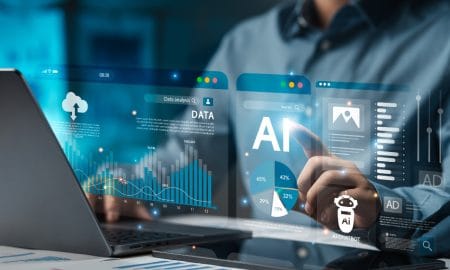As Africa’s major democracies explore the use of artificial intelligence in elections, both optimism and caution are shaping the conversation.
Kenya, with general elections due in two years, is taking early steps. The Independent Electoral and Boundaries Commission (IEBC) has been consulting stakeholders on the role of AI, social media, and digital platforms in election management.
IEBC CEO Marjan Marjan highlighted the dual nature of AI during a February conference, urging the continent to develop tools and regulatory frameworks that align with African values. “AI must work for us, not against us,” he said.
Kenya has already experimented with AI tools. In the 2022 general election, the IEBC used a WhatsApp bot for voter information and partnered with the International Foundation for Election Systems to monitor hate speech online.
In Nigeria, the Independent National Electoral Commission (INEC) took a bolder step in May by establishing a dedicated AI Division within its ICT department – a move it says reflects the evolving demands of digital electoral governance.
However, the announcement has drawn mixed reactions. Civil society groups, including the Nigeria Labour Congress, questioned whether Nigeria’s current electoral foundation is strong enough to support such a shift.
“Before AI, we need human intelligence – systems that guarantee integrity,” said Comrade Asuzu, pointing to the disputed 2023 elections as evidence of widespread public distrust.
Voter turnout has steadily declined in Nigeria – from 69.1% in 2003 to just 27.1% in 2023, according to NGO Yiaga Africa, which noted a backslide in democratic progress.
Still, INEC’s Sam Olumekun said the new AI Division will enhance decision-making, risk management, and voter engagement, improving election credibility with predictive analytics and intelligent safeguards.
Cybersecurity expert Destiny Young called the move a milestone, projecting 2027 as a potential turning point for “tech-powered democracy” in Nigeria.
As both countries chart a path toward digital innovation in elections, the challenge remains: Can AI improve trust in systems still grappling with transparency and accountability?






